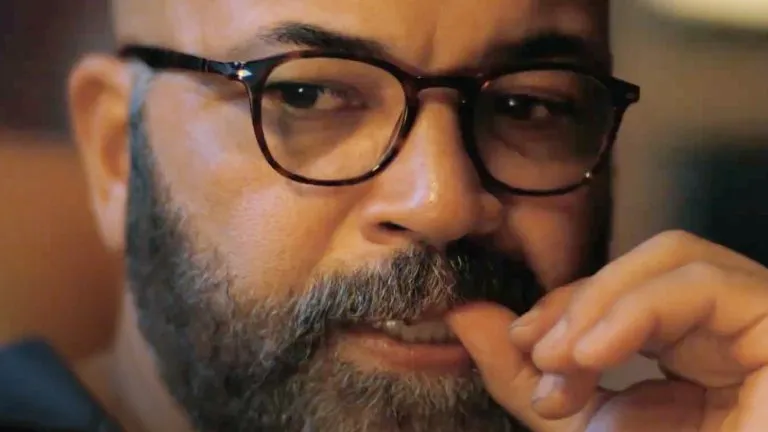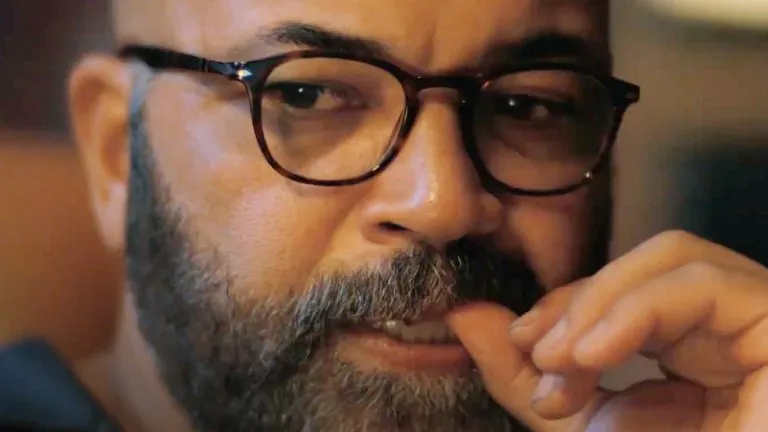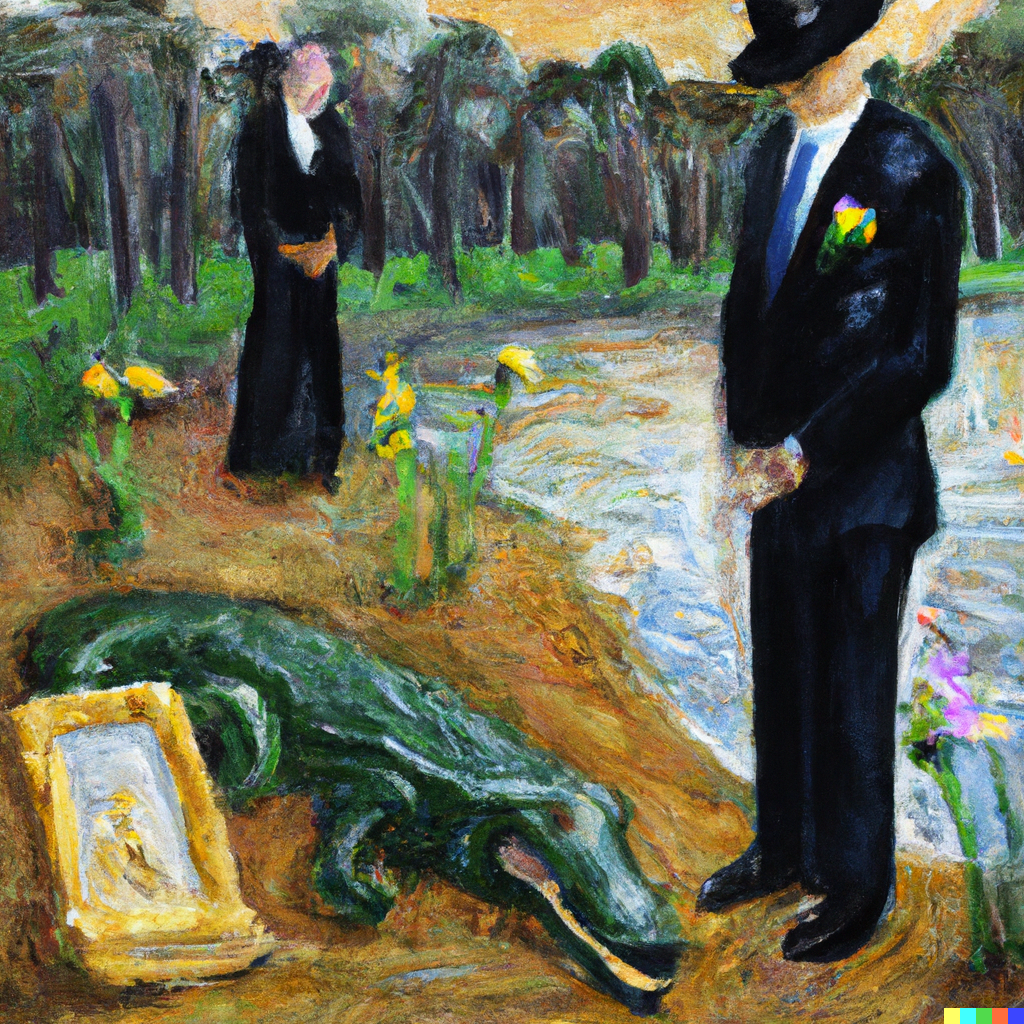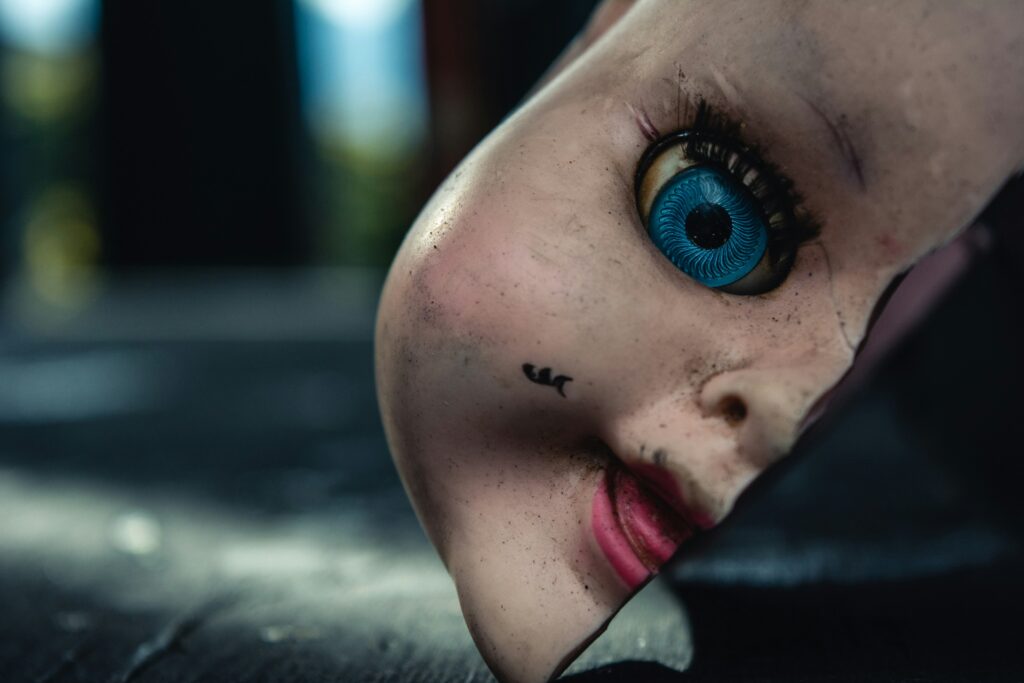We Die for What We Believe
Aaron Morell, February 6, 2024
No one ever questioned the importance of gizzard removal surgery. For generations the procedure had been used to treat psychosis, derangement, nervous disorders, and hundreds of other physiological maladies. Unfortunately, the survival rate was fifty percent at best. For this reason it was a last option but the success rate for those who survived was excellent. What Citizen May had a problem with was the mysteriousness of it all.
The program was run by the Ministry of Critical Health, a public-private partnership. The half-dozen facilities around the country were top secret and impenetrable. The surgeons were the cream of the crop. The rigorous training they went through was unparalleled and the surgery itself could only be performed by a handful of doctors in the entire world. As a national security precautionary measure, its surgeons and officers were forced to live in anonymity.
Gizzard infection wasn’t typically a quiet disease. Long periods of heightened emotions, instability, and anger accompanied the other symptoms. Anyone could call 1-800-GIZZARD to talk to a consultant about themself or a family member. There was also a vast network of scouts who looked for more subtle signs of pre-infection gizzard growth but the Ministry didn’t disclose those indicators.
Everything about the gizzard was frightening. Just having a bad day could make a person dizzy with anxiety, certain they’d contracted the gizzard-causing pathogen. People lived in a constant shadow of fear. May wanted to change that so the community felt like they had some control.
So she presented a proposal for the county to become directly involved in the gizzard diagnostic process. Instead of calling the national hotline, all gizzard referrals would go through the local health department, whose officials would determine who needed to seek consultation with the Ministry. It was a bold idea. Too bold, in fact, and legally dubious. The county commissioners furrowed their brows with apprehension as May explained her idea. It was pretty clear they had no intentions of pursuing her proposal.
Chap believed right and wrong was black and white if you maintained a strong moral character. Keeping good company was the surest way to avoid the pitfalls of decadence and highbrow depravity. Young men would often say to Chap that it wasn’t always easy to tell the difference between a rooster and a hen. “No it ain’t,” he would agree, but if your moral compass was tuned to the Church on one pole and the Guild on the other, you would keep yourself on the right path.
During Chap’s seven-year tenure as Guild president, only three of its members had undergone gizzard surgery. “We get to them first,” is how Chap explained their unparalleled success. They required members to be on the lookout for early signs of gizzard growth, but they were always vague about how they were being healed. “It’s about being physically and morally fit.”
When the news story about May’s proposal appeared in the local paper, the Guild leaders were up in arms. Just a few years earlier, Citizen May was behind a campaign that led to the city council passing a law that said folks no longer had to be a member of the Guild to practice their trade. In a public speech, she compared them to a criminal syndicate and declared it was just a matter of time before they would control the whole town. She was the one being the control freak! Chap never forgot that low blow. Her newest proposal felt personal.
Guild leadership enlisted allies around town to publish opinion pieces in local papers and magazines. Together they called the proposal authoritarian, unpatriotic, and asinine. They were certain it would make them the laughingstock of the region. These preemptive strikes only brought more attention to May’s proposal. All of a sudden it was the talk of town.
In order to nip it in the bud, the county commissioners released a statement pointing out that the gizzard program was federally mandated and tied to national security. It wasn’t something local governments could fiddle with. Plus, the Ministry was one of the most respected institutions in the country. Why would anyone want to squabble with them?
That was that for May’s big idea. Or so it appeared. A few weeks later the local newspaper ran a story about a former resident who had been a Guild member. Towards the end of his time in town, he’d been having headaches and other physical ailments, on top of personal issues. Just as he was supposed to do, he contacted Guild leadership. They sent him to various doctors and had their own people work with him to get his life straightened out. Things just got worse though. According to this man, who maintained anonymity for fear of retaliation, he was pushed out of the Guild, and therefore out of work, and they made him relocate to a different town. Allegedly he was told if he didn’t leave he would be sent to the Ministry.
Guild leadership and its members cried foul and targeted their ire at the newspaper. They complained the editors had always been out to get them. Signs started popping up in store windows calling for a boycott of the biased, spiteful publication. To the Guild’s consternation, the former member revealed his identity on the local television news. They had no choice but to admit he was once part of their fraternity. Chap explained to the press that the man was kicked out for substandard performance, irresponsible business practices, and excessive customer complaints. They tried to help him but he was beyond reform.
Soon, more out-of-towners began coming forward and testifying how they too were pushed out because of various health reasons. Leadership fought back but it was looking bad for them. So finally the Guild held a press conference that was broadcast live. Chap stood at the microphone in his ceremonial uniform, with a hundred fifty officers and members behind him. When the cameraman gave the signal, Chap came in hotter than anyone had ever seen him.
A war is being waged against this town’s oldest and most respected association. Outrageous lies are meant to weaken our guild, erode its integrity, and destroy the trust of the citizens. I won’t stand up here and tell you who is behind this but I will tell you why: power and control! I’ve been a Guild member since I was sixteen and I’ll be a Guild member til the day I die. I’m proud to represent these fine men and to serve them. I will stand by them because we are the Guild and we will fight for what we stand for!
May’s parents were free-spirited bohemians who never seemed to have any clear direction or plan. She spent much of her childhood moving back and forth across the country, living in their van or cohabiting with other families like theirs. When she was eleven they visited her grandmother. May ended up staying. It was hard not seeing her parents for long periods but she desperately wanted the stability she had found.
This probably explains why May believed so deeply in government, the essential structure of a well-ordered and safe community. There was never a day when she wasn’t involved in a local event, be it a county board meeting, public commission, or a bake sale. She frequently chaired various committees and even served one term as city clerk and had run for city council twice. But it wasn’t power she desired. May abhorred closed systems that lacked transparency and seemingly existed to accumulate power.
The opaqueness of the Ministry made her uncomfortable but the protected secrecy of the Guild made her skin crawl. Despite her distrust of the Guild, her proposal was not about them. So the ferocity and swiftness of their opposition caught her off guard. Although the critics didn’t call her out by name, it sure felt personal. It intimidated her supporters. No one wanted to step into that line of fire.
Things changed when the former Guild members began coming forward and telling their stories. It also came to light that the Guild was behind the attack on May. A lot of folks who didn’t care for the way they bullied her, lined up behind her. Just like that, a campaign was born.
May and her partners really hammed it up. “We need to care for people in our community, not wreck their lives because they’re feeling down or not acting just right. That’s abuse of power, a violation of human dignity, and an attack on our town and county. That’s not what we stand for.”
At the group’s official launch in front of the town founder’s statue, May dropped a bombshell that stunned everyone in attendance and would soon be felt across the entire region. She declared they were putting forth a revised proposal that called for the development of a gizzard removal facility owned and operated by the county. The immediate silence that followed was awkward. A woman standing behind May threw her arms up triumphantly and started clapping and those around followed suit. Within seconds the entire crowd was whipped into wild applause.
The Guild’s image had taken a hit. Leadership was staying behind the scenes but by no means were they passive bystanders. Chap was instrumental in running a full-page ad in the newspaper, despite their editors being uncomfortable with their paper being used in this manner. Well-thought-out opinion pieces were one thing but hyperbolic advertising was something else. The Guild and their allies swore they would wage a holy war against the paper if they didn’t allow them their due right to political expression. The management caved.
WE ARE WITNESSING THE BIRTH OF TOTALITARIANISM! THE COMMISSION MUST IMMEDIATELY REJECT THE GIZZARD PROPOSAL AND DENOUNCE CITIZEN MAY.
The entire county was caught up in the brouhaha. There were hundreds of signs in shop windows and lawns calling for this or that. Regional reporters and even a few major network stations showed up. The high point of the media coverage was when the town was featured in one of the top TV programs in all the land. The famous host interviewed a doctor who had worked for twenty-five years as a liaison between the Ministry and the public. He explained how gizzard infection was transmittable when not caught in time. Specialization of the doctors and the medical procedure couldn’t be overstated. Maintaining each facility required thousands of employees. The future of the planet depended on the Ministry’s success.
None of this was new to anyone. Gizzardry was as much a part of school curriculum as learning letters and numbers. But the thing with gizzard growth was that it didn’t occur in plain sight. The former liaison reminded the host that it was undetectable even to common doctors and surgeons. Vigilance against gizzard outbreaks was a lifelong daily effort but it was surprisingly easy for people to let their guard down. According to the doctor, this wasn’t the first time a locality had demanded more power or transparency with gizzard treatment. In almost every instance it ended with a major gizzard outbreak.
FAMOUS HOST: Are you saying those people are in trouble?
DOCTOR: I’m just saying what happened in the past.
Something about the gizzard procedure and the Ministry never sat right with Burt. The whole thing made him uneasy so he tried not to think about it too much. Mostly it was the weirdness of it all. In the back of his mind, he feared becoming a gizzard candidate simply because he wasn’t exactly like most folks. Even further back in his mind, behind closed doors, was a childhood memory of being harassed by kids circling around him, calling him gizzard boy. Those doors were locked, the keys lost, but it didn’t keep the humiliation and anxiety from trickling through the cracks.
One day a work buddy of his told him there was a reason why nobody really understood gizzardry and why the government kept it so tightly under wraps. Gizzards were extraterrestrial implants. “Think about it, how many times have you heard candidates and survivors talk about how they couldn’t remember chunks of time or how they woke up with a weird feeling of having been away.” It was more visceral than a dream and the feeling was unshakable.
His buddy recommended something Burt should read so he went to the public library and signed into an internet station where no one could see his screen. The article was more like a short book that chronicled the history of gizzard growth. There were centuries-old drawings that illustrated bizarre internal growths and mysterious illnesses. The author suggested the Salem witch hunts were caused by rampant gizzard infection, and not only in those accused but also in the accusers. The euphoric behavior seen in speakeasies and jazz clubs during the 1920s prohibition era was probably gizzard-related.
An alien race was responsible for the implants but not much was known about them. The theory was they’d been colonizing planets for eons using this method. What the government called gizzard infection was actually the process whereby cells of nearby organs began to reorganize into extraterrestrial organs. There was a time when birds, alligators, and gizzarded fish were completely different creatures. Thankfully humans, the earth’s guardians, had been able to stave off widespread infection.
There was a simple explanation for the Ministry’s ironclad secrecy: sterility. If the aliens infiltrated any one facility it would be disastrous. It could collapse the facility and immediately spread to the surrounding locality. Rampant and widespread outbreaks would be difficult to contain, even though the Ministry and Military were always preparing for this possibility. Institutions, cities, and entire regions would be threatened. It was a nightmarish scenario.
When Burt left the library that night, he no longer saw the world the same way. He walked straight to his buddy’s house. They talked deep into the night about gizzardry and the fate of the world. The next evening, Burt was introduced to dozens of others who were tuned in. Wholeheartedly he joined their movement to resist the alien infestation. The Reptilians what they called themselves. The name came from illustrations of the extraterrestrials.
The group didn’t need a doctor on TV to tell them May was infected. They already knew. For weeks they’d been scouting meetings around town that involved her and her circle. One day the moment they had been anticipating finally came. At a Women’s Needlework luncheon, May said this to the attendees: “Ladies, we can change the world. And it begins right here in our town.” That sent a mortifying chill through the Reptilian community.
Guild leadership’s silence had also been troubling them. From the get-go they were suspicious of those former members who came forward with the allegations. It was obvious they were low-level louses who’d been unsuccessful at their trade and held a grudge against the Guild. Clearly, someone else coordinated the attacks but those men were easy recruits. The fact that it worked so easily made the Reptilians nervous.
On the same day that May spoke at the needlework luncheon, Chap was interviewed on the evening news. His television appearance alone was a huge lift but what he said was even more significant. “Our town, our lives, and our children depend on what we do next. Our future is on the line.”
The town was frenetic in the days before the county commission was scheduled to vote on whether to pursue any form of May’s proposal. You couldn’t go a block without getting caught up in the politicking, protests, and pleading. Burt and all the other Reptilians dressed in elaborate costumes modeled after a seventeenth-century illustration of an extraterrestrial with a reptile head on a birdman’s body with both wings and arms. Approximately a hundred and fifty of them spread out around town with signs warning of a concentrated gizzard infestation.
The day before the commission vote, they gathered outside the county fair building where May and her group were assembled inside for their biggest rally yet. The big rectangular metal structure was used for fair events, agriculture shows, and even the traveling circus from time to time. Burt and a dozen other costumed aliens climbed to the roof using a rope and pulley that one of their members, a fairgrounds caretaker, planted the day before.
They stomped around the roof creating a discomforting ruckus for those inside. Spontaneously they started circling a huge heating pump in the manner of a ceremonial powwow dance. After doing this for some time, a spot where the unit’s brackets were bolted to the roof suddenly ripped. A few dancers noticed it shift but they continued on. Then moments later with a terrifying screech, the roof ripped open enough to cause the antique pump to tilt down. The dancers stopped, but before anyone could discern the present danger, the unit plunged through the roof as if it were paper, pulling the Reptilians in behind it.
To some attending the rally, looking back it would seem as if the massive heater tumbled through the air in slow motion with the bizarre reptile birds futilely flapping their arms above it. But to most others, it all happened in a flash. There was a strained squeal of twisting metal followed by a crash overhead. In the next moment, the stage was a bloody wreck. Citizen May and four of her comrades were killed instantly, along with Burt and the others.
At the public memorial service, it was said that despite their differences the victims were all united as members of the community. And like true patriots each of them fought for what they believed in until the very end. All proposal-related events were postponed and eventually abandoned.
Even though Chap wasn’t friendly with any of the victims, the horrific nature of the tragedy affected him. The fight against May had become bigger than him until he was merely a force of spirit within the beast. When that beast was destroyed, it left Chap withered and powerless.
He became ill soon after and took a hiatus from his leadership post. It became clear to his friends and colleagues that he wasn’t okay. They referred him to the Ministry for gizzard diagnosis. A white truck came one night. Men who looked like astronauts in space suits met him at his front door. They led him out to the truck to be examined. An hour later they drove away with Chap. He was never seen again.
You may also like

Eyes of the Beholden
Unspoken desires linger in the shadows of a teacher's life, revealed through art

LOST
Bessie's odyssey through stormy nights, lost love, and secret graveyards unfolds with haunting beauty in "Lost" by Sandra Dennis.

Water Rising
Amidst a flood, a woman grapples with the past, and confronts the consequences in this haunting narrative of resilience.

Book Review: White Nights by Urszula Honek
The debut short story from Polish writer Urszula Honek, White Nights, is akin to reading an account of a haunted place – one that is beautiful and devastating in equal

Beyond the Surface: The Multifaceted Lives of ‘American Fiction’
In essence, "American Fiction" and the experiences it draws from remind us that we are indeed more than the sum of our parts.

Beyond the Surface: The Multifaceted Lives of ‘American Fiction’
The narrative of “American Fiction” unfolds with a dual focus: it not only scrutinizes the unique pressures faced by Black creatives but also delves into the intricate and sometimes tense…

Uncle Bobby’s Funeral
Reluctant family faces the eccentricities of Uncle Bobby's funeral in swampy Chipley.







